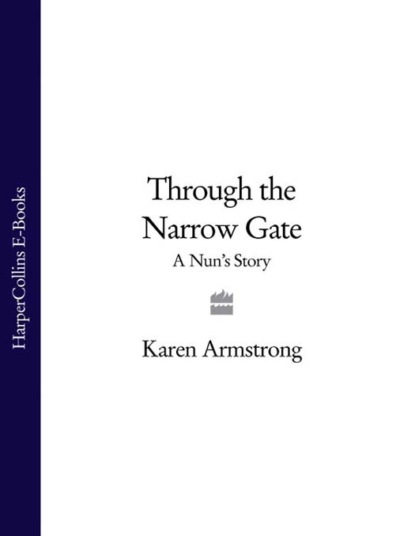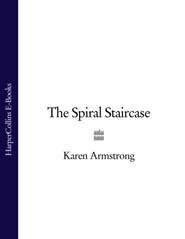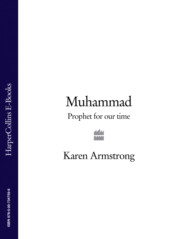По всем вопросам обращайтесь на: info@litportal.ru
(©) 2003-2024.
✖
Through the Narrow Gate: A Nun’s Story
Настройки чтения
Размер шрифта
Высота строк
Поля
“Yes, four o’clock.”
“Right, Mother, I’ll be there,” he said. Mother? A woman, then. I gaped incredulously. I looked up again at the face. There was so little of it that I could see. There was a wart, I noticed, on the top lip. Did all nuns have one?
“Come along, Karen,” and I was led away from the alarming din; this friendly “Mother” would interpret the world for me. I was safe with her.
Gradually I learned to adapt to the aggressive and turbulent life of the classroom and the playground. I learned to read very quickly and discovered the joy of losing myself entirely in books without my parents’ help. Otherwise work bored me somewhat. As I grew older and was set small tasks for homework, I skipped through them as best I could, relying on my wits to get me through. But during my time in the Junior School two incidents impressed themselves forcibly on me, setting a pattern that would profoundly influence me in the future—my love for a challenge.
The first occurred when I was eight. We had by then moved into Birmingham, and my parents decided that I should learn to swim. Three times a week we went to the strange echo-filled swimming baths where a fearsome lady called Mrs. Brewster gave free instruction. The first stages of swimming were pleasant enough, but at length it was time to learn to dive. I was terrified. The idea of falling head foremost through the air, seeing the glittering water rush to meet me, was appalling. I refused to do it, hating myself for my cowardice. At length Mrs. Brewster had had enough of my evasion. She picked me up in her brawny arms, taking no heed of my frantic kicking and screams for help, and strode to the brink of the pool. “One, two, three!” she called and hurled me head first into the water. I flew dizzily; the sinister blue water dazzled terrifyingly for a moment, and then there was nothing but a confusion of water and sound.
I found myself standing in the pool, dazed, yes, exhausted, but also exhilarated. I had survived. And I had done it. I had done it. From that moment swimming became heaven for me. A chunky child, I was altogether without physical grace, but now the water became my element. And I’d learned that to find freedom from my limitations I had to push myself beyond what I thought I could do.
The second incident centered that same year on an encyclopedia called A Path to Knowledge. It was a four-volume work that my father had seen advertised and he urged me to read a little of it every day.
“While your mind is young, you’ll learn lots of things that will stay with you all through your life. Knowledge is one of the most important things in the world. It gives you freedom.”
The volumes looked important in their dark green binding with gold lettering. Glancing through them I discovered that the best part was definitely Volume IV, where there was a lot about writers and poetry and some history, too, the things that I liked best at school. But I closed that volume firmly. Knowledge was a serious business. I had to start at the beginning and work through to the end. Dipping in here and there was a frivolity. I knew the rules of life: before you were allowed cake for tea you had to eat your bread and butter. Also the title of the work enthralled me. A path lay ahead, down which I would heroically overcome all obstacles, grappling with huge intellectual difficulties until at the end knowledge loomed gloriously. And I would do it alone.
So chapter by chapter, page by page, I dragged myself on through all four volumes. My eyes glazed with boredom, I ploughed my way through the dusty paths of mathematics, science, industry, and commerce. One evening, as I was engaged with a study of the iron and steel trade, my father came into the room.
“Oh, you’re reading the encyclopedia, are you?”
I glowed with satisfaction at his pleasure.
“What are you reading now?” he asked, looking over my shoulder, and, ablaze with virtue, I announced:
“Trades.”
“Trades?” said my father, surprised. “Do you like that?”
“Well, no, this bit is awfully boring.”
My father scratched his head, bewildered. “Then why on earth read it?”
I explained. My father looked at me as though he had spawned a monster and then threw back his head and roared with laughter. Helpless, he staggered to the bed and collapsed, shoulders heaving with mirth. Then, seeing my indignation, he explained to me how to use an encyclopedia. It was a relief to put Volume II back on the shelf and open the enticing Volume IV. But I had a lingering suspicion that I had cheated.
One thing that school did for me in those early years was to introduce me to religion. At home religion was cut down to a minimum. My father was a recent convert to Catholicism and never felt completely at home in the church. When we went to Mass he knelt there, glasses on the end of his nose, peering dubiously at his English translation of the Latin that was being gabbled mechanically at the altar.
It took years for religion to mean much more than this to me—an hour of excruciating boredom on Sunday morning which I longed to be over and done with. “Can’t we go to seven o’clock Mass, Mummy?” I’d plead, knowing that we would then be home just after eight and the rest of the day would be my own. Often I got up at six on Sunday mornings and walked to Mass by myself, arriving home just in time to wave off my family who were dutifully setting off for the nine o’clock Mass. I watched them go with a heady sense of freedom.
But gradually religion got through to me. At school we lived the rhythm of the church’s year, and that rhythm formed the liturgical background to my own view of life. At Lent the drapings of the altar turned to purple. Gloomy hymns were sung; I listened to the story of Jesus’ fight with the devil in the wilderness after his six weeks’ fast. Lent became a heroic and arduous pilgrimage. We were taught to make “acts”. “What are you giving up for Lent?” we asked one another. Sweets, sugar in tea, watching television? Or, “What are you going to do for Lent?” Go to Mass twice, three times a week? Every day? Say the rosary regularly? Make a special effort not to quarrel?
The possibilities were endless, and, for me, Lent became another race with myself. Can I keep it up? Can I go to Mass every day for six solid weeks, through the wet, cold spring mornings? Can I force myself to say the rosary every single evening? Lent grew darker; at Passiontide the statues in the convent were covered in purple drapes and stood there clumsy, bulky, and reproachful. For always by that time I had failed. There would be the morning I slammed down the alarm clock as it pealed heartlessly at six o’clock and turned over for another half-hour in bed. Or the orgy of eating sweets. Failure. But I persevered. Now let’s have another go during Passiontide. Only two weeks—you can do it; you can do it. Then Holy Week: the long dramatic services that spoke to me more deeply than I could readily put into words. The long lines of people on Good Friday bending to kiss the feet of the crucified Christ, the aching knees. The church stripped and empty in deep mourning. And then suddenly it was Holy Saturday night. We’d stand outside the church at eleven o’clock while the priest struck a new flame and lit the great Paschal candle. Flame passed then to each of us as we handed the Easter light to one another. And then the procession wove its way into the pitch-black church, the light of Easter piercing the darkness, overcoming it as more and more of us entered the church with our candles.
“The light of Christ!” chanted the priest.
“Thanks be to God!” we replied in unison.
The ancient symbolism spoke to something very deep in me. There was the joy of that moment at midnight when suddenly all the electric lights were switched on, flowers were rushed to the stark altars, the organ—silent during the six weeks of Lent—pealed joyously, and all the congregation took out the bells they had brought and rang them: “Christ is risen.” Death is swallowed up in victory.
I must have been just twelve years old when death once again threatened our family. One Sunday afternoon my sister Lindsey, who was then nine, complained of a sore throat. I didn’t take much notice.
Lindsey and I rarely got on well together; we were too different. She was an attractive child with huge blue myopic eyes and long, dark plaits. Her beauty threw my own plump toothiness into harsher relief, I felt. So did her charm. She was a charismatic child who, wherever she was, attracted a swarm of friends. I had friends, too, in a quiet sort of way, but not spectacularly like Lindsey. At home I liked to be quiet and I resented Lindsey’s constant claims on my time and energy. I wanted to read; Lindsey wanted to play. I hated conflict and quarreling. She, turbulent and dramatic by nature, loved it, goading me into arguments and rows. So on that first afternoon of her illness I glanced briefly from my book as she was shepherded up to bed and smiled to myself at the prospect of a couple of days of peace.
But her temperature soared up and up. After two days she was weeping with the pain in her throat, until finally she could scarcely breathe. I heard people whisper “Diphtheria” darkly, and the house was filled with doctors and muttered consultations. My parents crept about looking pale and stricken and I was left to my own devices. Huddled miserably in a corner of the dining room, I tried to read but couldn’t. I could scarcely think. Outside the cold March evening blew wetly. Oh, my God, if she died how would I ever forgive myself? I kept thinking of that afternoon when I had repeatedly refused to play with her, and she had gone to my father and climbed on his knee. “I do love Karen so. Why is she always so horrid to me?” At the time I had been disgusted, wondering how anyone could descend to such a sentimental method of getting her own way. Now, inevitably, the words returned with terrible poignancy. If she died, how would my parents ever be able to forgive me for my rejection of my little sister? And how would I be able to forgive myself? She was so small. Death seemed monstrously unfair.
If God took Lindsey away now, He could take anyone at any time. The world once more seemed a frightening and unpredictable place, as it had after Caroline died and those dragons pursued me over endless hills in my dreams.
In bed that night I thought I should be quite unable to sleep. “Dear God,” I prayed before getting into bed, “if you make Lindsey better I’ll always be nice to her.” Outside I could hear the specialist going downstairs to make a phone call. I heard the door closing behind him, and my ears strained in the darkness trying to catch a sound. Nothing. Death made everything fraught with anxiety. “Dear God,” I found myself continuing, “if Lindsey gets better I’ll think about being a nun.”
I listened to myself in astonishment. Why had I promised that? Never in my wildest moment had I ever considered being a nun. The thought of the renunciation involved took my breath away. I heard the surgeon padding quietly upstairs. I heard my mother’s voice, strained and anxious, talking about an ambulance. Just a word here and there. But I didn’t hear any tears. My mother despised tears. And then suddenly I dropped off to sleep.
In the morning Lindsey was better. She had had a huge inflammation in her throat, and the surgeon had been just about to perform a tracheotomy when the poisonous thing broke and she could breathe again. We could all breathe again, but now once more the world seemed ringed round with a threat. I had forgotten how insubstantial life really was; Caroline’s death had been so long ago. There would be many times in the next three or four years when I would forget this again, but Lindsey’s illness had scarred my trust in life, and from time to time I would taste again that frightening emptiness of the world I lived in.
I kept remembering the promise I’d made to God. It almost seemed as though someone else had made it for me while I was off guard. Who? God? Had He been trying to tell me something? I turned away from that idea; it was full of disturbing implications, but time and again in the years to come I would flinch at the memory uneasily. Now I tried to salve my conscience. I only said I’d think about it, I reassured myself. I didn’t say I’d actually do it.
2 • POINTERS 1956-1961 (#ulink_ccb363dd-e187-5265-99c3-196deb894f2c)
“Children! I have something very wonderful to tell you!” Mother Katherine, my headmistress, stood on the raised dais in the school hall, presiding over the morning assembly. I was in the Senior School now and at twelve was still slightly in awe of the formality and the size of my new surroundings. We stood in alphabetical order in lines of classes. Mine, the First Form, by the wall. Mother’s eyes were shining with enthusiasm; her hands, draped in the long, black ceremonial sleeves, were clasped together with suppressed emotion.
I shifted from foot to foot uneasily. These ecstatic announcements were frequent and never seemed to me to occasion much rejoicing.
“You all know Miss Jackson,” she continued. “Some of you, the older girls, will know her very well indeed.” What can she have done? I thought to myself. Miss Jackson taught A-level physics to a handful of girls in the Sixth Form. She was a pale, colorless figure. Sometimes I glanced at her as she strode round the school with her white overall flapping round her short legs, her frizzy hair gripped back from a bony face. I glanced at her and mentally dismissed her. Perhaps she’s got married, I thought with a flicker of interest. Then I shrugged. Unlikely.
“Well, Miss Jackson has decided to give her life to God,” Mother Katherine’s deep voice rang out dramatically. “She has decided to become a nun.”
I gasped. I had always known in theory that nuns were ordinary people once, but in reality they had seemed a separate species. I looked at Mother Katherine with new eyes and for the first time noticed that she was a lovely looking woman. No, perhaps woman was the wrong word. I couldn’t imagine her in ordinary clothes, with hair and legs.
Not quite. But her face was lovely.
We filed out of the school hall, each one of us dropping a curtsey to Mother Katherine as we passed the dais.
“Fancy that!” I whispered to my friend Diana. It seemed a terrible fate.
“More fool her!” Diana replied. “I can’t think of anything worse, can you?”
I shook my head.
“And never getting married!” Diana sounded aghast. “Imagine—actually choosing not to get married and not to have children. I’m going to get married as soon as I leave this dump!” She looked contemptuously at the cream walls of the corridor, punctuated here and there with bulletin boards. “And I’m going to have masses of children—seven at least. Aren’t you?”
I nodded. I had always assumed that I’d get married. After all, everybody did. But suddenly getting married seemed rather less attractive. It was so predictable. We entered the classroom and began scrabbling in our desks for our French textbooks.
“Still,” Diana went on, “I don’t suppose Miss Jackson would ever have gotten married, do you? She was pretty ugly, really. And old.”
“No,” I agreed with Diana, “I don’t suppose anyone would have married her.”
“Well, then, it’s probably all for the best. Anything’s better than being an old maid. I’d die if I wasn’t married before I was twenty. It’d be so embarrassing!”
During the morning I forgot about Miss Jackson. During the lunch hour, however, I noticed a photograph on the bulletin board that hadn’t been there that morning. It was, I realized with a shock, Miss Jackson. I looked closely at it. She was wearing a long black dress, a little cape, and a short, floppy white veil. Her hair was drawn back tightly from her face and she looked out at the camera with an expression of—what was it?—yes, surprise. Even Diana was impressed.









